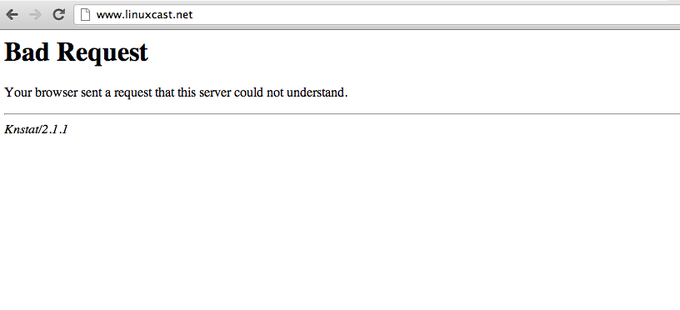-
Rails 中临时把一个 model 的错误消息删除该怎么做? at 2012年11月09日
#3 楼 @cxh116 版本似乎还是不一样嘛 我代码是这样的
# Active Record validation is reported to and from this object, which is used by Base#save to # determine whether the object is in a valid state to be saved. See usage example in Validations. class Errors include Enumerable class << self def default_error_messages ActiveSupport::Deprecation.warn("ActiveRecord::Errors.default_error_messages has been deprecated. Please use I18n.translate('activerecord.errors.messages').") I18n.translate 'activerecord.errors.messages' end end def initialize(base) # :nodoc: @base, @errors = base, {} end # Adds an error to the base object instead of any particular attribute. This is used # to report errors that don't tie to any specific attribute, but rather to the object # as a whole. These error messages don't get prepended with any field name when iterating # with +each_full+, so they should be complete sentences. def add_to_base(msg) add(:base, msg) end # Adds an error message (+messsage+) to the +attribute+, which will be returned on a call to <tt>on(attribute)</tt> # for the same attribute and ensure that this error object returns false when asked if <tt>empty?</tt>. More than one # error can be added to the same +attribute+ in which case an array will be returned on a call to <tt>on(attribute)</tt>. # If no +messsage+ is supplied, :invalid is assumed. # If +message+ is a Symbol, it will be translated, using the appropriate scope (see translate_error). def add(attribute, message = nil, options = {}) message ||= :invalid message = generate_message(attribute, message, options) if message.is_a?(Symbol) @errors[attribute.to_s] ||= [] @errors[attribute.to_s] << message end # Will add an error message to each of the attributes in +attributes+ that is empty. def add_on_empty(attributes, custom_message = nil) for attr in [attributes].flatten value = @base.respond_to?(attr.to_s) ? @base.send(attr.to_s) : @base[attr.to_s] is_empty = value.respond_to?(:empty?) ? value.empty? : false add(attr, :empty, :default => custom_message) unless !value.nil? && !is_empty end end # Will add an error message to each of the attributes in +attributes+ that is blank (using Object#blank?). def add_on_blank(attributes, custom_message = nil) for attr in [attributes].flatten value = @base.respond_to?(attr.to_s) ? @base.send(attr.to_s) : @base[attr.to_s] add(attr, :blank, :default => custom_message) if value.blank? end end # Translates an error message in it's default scope (<tt>activerecord.errrors.messages</tt>). # Error messages are first looked up in <tt>models.MODEL.attributes.ATTRIBUTE.MESSAGE</tt>, if it's not there, # it's looked up in <tt>models.MODEL.MESSAGE</tt> and if that is not there it returns the translation of the # default message (e.g. <tt>activerecord.errors.messages.MESSAGE</tt>). The translated model name, # translated attribute name and the value are available for interpolation. # # When using inheritence in your models, it will check all the inherited models too, but only if the model itself # hasn't been found. Say you have <tt>class Admin < User; end</tt> and you wanted the translation for the <tt>:blank</tt> # error +message+ for the <tt>title</tt> +attribute+, it looks for these translations: # # <ol> # <li><tt>activerecord.errors.models.admin.attributes.title.blank</tt></li> # <li><tt>activerecord.errors.models.admin.blank</tt></li> # <li><tt>activerecord.errors.models.user.attributes.title.blank</tt></li> # <li><tt>activerecord.errors.models.user.blank</tt></li> # <li><tt>activerecord.errors.messages.blank</tt></li> # <li>any default you provided through the +options+ hash (in the activerecord.errors scope)</li> # </ol> def generate_message(attribute, message = :invalid, options = {}) message, options[:default] = options[:default], message if options[:default].is_a?(Symbol) defaults = @base.class.self_and_descendants_from_active_record.map do |klass| [ :"models.#{klass.name.underscore}.attributes.#{attribute}.#{message}", :"models.#{klass.name.underscore}.#{message}" ] end defaults << options.delete(:default) defaults = defaults.compact.flatten << :"messages.#{message}" key = defaults.shift value = @base.respond_to?(attribute) ? @base.send(attribute) : nil options = { :default => defaults, :model => @base.class.human_name, :attribute => @base.class.human_attribute_name(attribute.to_s), :value => value, :scope => [:activerecord, :errors] }.merge(options) I18n.translate(key, options) end # Returns true if the specified +attribute+ has errors associated with it. # # class Company < ActiveRecord::Base # validates_presence_of :name, :address, :email # validates_length_of :name, :in => 5..30 # end # # company = Company.create(:address => '123 First St.') # company.errors.invalid?(:name) # => true # company.errors.invalid?(:address) # => false def invalid?(attribute) !@errors[attribute.to_s].nil? end # Returns +nil+, if no errors are associated with the specified +attribute+. # Returns the error message, if one error is associated with the specified +attribute+. # Returns an array of error messages, if more than one error is associated with the specified +attribute+. # # class Company < ActiveRecord::Base # validates_presence_of :name, :address, :email # validates_length_of :name, :in => 5..30 # end # # company = Company.create(:address => '123 First St.') # company.errors.on(:name) # => ["is too short (minimum is 5 characters)", "can't be blank"] # company.errors.on(:email) # => "can't be blank" # company.errors.on(:address) # => nil def on(attribute) errors = @errors[attribute.to_s] return nil if errors.nil? errors.size == 1 ? errors.first : errors end alias :[] :on # Returns errors assigned to the base object through +add_to_base+ according to the normal rules of <tt>on(attribute)</tt>. def on_base on(:base) end # Yields each attribute and associated message per error added. # # class Company < ActiveRecord::Base # validates_presence_of :name, :address, :email # validates_length_of :name, :in => 5..30 # end # # company = Company.create(:address => '123 First St.') # company.errors.each{|attr,msg| puts "#{attr} - #{msg}" } # # => name - is too short (minimum is 5 characters) # # name - can't be blank # # address - can't be blank def each @errors.each_key { |attr| @errors[attr].each { |msg| yield attr, msg } } end # Yields each full error message added. So <tt>Person.errors.add("first_name", "can't be empty")</tt> will be returned # through iteration as "First name can't be empty". # # class Company < ActiveRecord::Base # validates_presence_of :name, :address, :email # validates_length_of :name, :in => 5..30 # end # # company = Company.create(:address => '123 First St.') # company.errors.each_full{|msg| puts msg } # # => Name is too short (minimum is 5 characters) # # Name can't be blank # # Address can't be blank def each_full full_messages.each { |msg| yield msg } end # Returns all the full error messages in an array. # # class Company < ActiveRecord::Base # validates_presence_of :name, :address, :email # validates_length_of :name, :in => 5..30 # end # # company = Company.create(:address => '123 First St.') # company.errors.full_messages # => # ["Name is too short (minimum is 5 characters)", "Name can't be blank", "Address can't be blank"] def full_messages(options = {}) full_messages = [] @errors.each_key do |attr| @errors[attr].each do |message| next unless message if attr == "base" full_messages << message else attr_name = @base.class.human_attribute_name(attr) full_messages << attr_name + I18n.t('activerecord.errors.format.separator', :default => ' ') + message end end end full_messages end # Returns true if no errors have been added. def empty? @errors.empty? end # Removes all errors that have been added. def clear @errors = {} end # Returns the total number of errors added. Two errors added to the same attribute will be counted as such. def size @errors.values.inject(0) { |error_count, attribute| error_count + attribute.size } end alias_method :count, :size alias_method :length, :size # Returns an XML representation of this error object. # # class Company < ActiveRecord::Base # validates_presence_of :name, :address, :email # validates_length_of :name, :in => 5..30 # end # # company = Company.create(:address => '123 First St.') # company.errors.to_xml # # => <?xml version="1.0" encoding="UTF-8"?> # # <errors> # # <error>Name is too short (minimum is 5 characters)</error> # # <error>Name can't be blank</error> # # <error>Address can't be blank</error> # # </errors> def to_xml(options={}) options[:root] ||= "errors" options[:indent] ||= 2 options[:builder] ||= Builder::XmlMarkup.new(:indent => options[:indent]) options[:builder].instruct! unless options.delete(:skip_instruct) options[:builder].errors do |e| full_messages.each { |msg| e.error(msg) } end end end现在只能用 class_eval 控制@errors变量了,感觉代码超级丑陋
-
Rails 中临时把一个 model 的错误消息删除该怎么做? at 2012年11月09日
#1 楼 @cxh116 你的 Rails 版本太新了,我这里是 2.3 的。API 差不多就是这样:http://ar.rubyonrails.org/classes/ActiveRecord/Errors.html 没有 delete 方法。
-
<转发自外刊 IT 评论网>如果编程语言是女人 at 2012年11月09日
Shell 是啥?
-
<转发自外刊 IT 评论网>如果编程语言是女人 at 2012年11月09日
Prolog 是啥?
-
ruby 有什么热点的 QQ 群吗? at 2012年11月09日
写 Ruby 的人和用 QQ 的人的文化是冲突的吧 你还是用邮件吧
-
关于符号~> at 2012年11月08日
约等于啊
-
求推荐能记账的好网站 at 2012年11月06日
在想如何证明这些网站能保护我们的隐私
-
macvim 下 rvm 不管用 at 2012年11月06日
Good.
-
sinatra+thin+nginx 的 session 问题 at 2012年11月05日
#2 楼 @sunmoonstr 额 HAProxy 是用来实现分布式的 web server,与 session 无关,session 共享还是需要使用 memcached 或是数据库来实现的。
-
sinatra+thin+nginx 的 session 问题 at 2012年11月05日
- try HAProxy
- 使用 memcached 或者数据库存储 session(cookie 也可以,但是容量有限制),sinatra 不了解,Rails 可以很容易的实现这个方法。
-
Ruby 2.0 新功能演示 at 2012年11月04日
当初做一个模拟用户不定期发送 http 请求的模拟器的时候,就有意使用了 fork 做多进程,就是为了防止不能并发 http 请求。
-
Ruby 2.0 新功能演示 at 2012年11月04日
# double splat to capture all keyword arguments, or use as hash as keyword, 两个星号表示可以把整个keyword arguments抓下来 # arguments def capture(**opts) opts end p capture(foo: "bar") #=> {:foo=>"bar"} 返回的是hash # keys must be symbols 传进的key一定要是hash opts = {:before => "(", :after => ")"} p wrap("foo", **opts) #=> "(foo)" 注意这里的**opts, 代表把上面的opts当做keyword arguments #旧的hash传参数方法继续支持,其实用起来不会有太大的不同 p wrap("foo", :before => "{", :after => "}") #=> "{foo}"其实没怎么看懂,def capture(**opts) 和 def capture(opts) 的区别是什么?都可以直接接受一个 hash 啊
-
Linux 在线学习及问答网站上线,仿 Codecademy 和 Teamtreehouse 风格,大家拍砖~~ at 2012年11月02日
@nash_su 不能访问

-
Linux 无联网情况下,如果安装 Ruby on Rails,谢谢 at 2012年11月02日
光盘安装
-
Linux 在线学习及问答网站上线,仿 Codecademy 和 Teamtreehouse 风格,大家拍砖~~ at 2012年10月31日
-
Linux 在线学习及问答网站上线,仿 Codecademy 和 Teamtreehouse 风格,大家拍砖~~ at 2012年10月31日
播客的视频有订阅功能吗?或是有没有个专门的 twitter 帐号负责订阅的?
-
Linux 在线学习及问答网站上线,仿 Codecademy 和 Teamtreehouse 风格,大家拍砖~~ at 2012年10月31日
-
Linux 在线学习及问答网站上线,仿 Codecademy 和 Teamtreehouse 风格,大家拍砖~~ at 2012年10月31日
-
Linux 在线学习及问答网站上线,仿 Codecademy 和 Teamtreehouse 风格,大家拍砖~~ at 2012年10月31日
建议支持 Gravatar,我真的找不到我的常用头像的原文件了。。
-
Linux 在线学习及问答网站上线,仿 Codecademy 和 Teamtreehouse 风格,大家拍砖~~ at 2012年10月31日
-
Linux 在线学习及问答网站上线,仿 Codecademy 和 Teamtreehouse 风格,大家拍砖~~ at 2012年10月31日
- 观看播客,发表评论
- 提示没有登录,随即输入用户名密码登录
- 回到刚才页面
expected: 评论依然出现在文本框中 或者 评论已经发出 actual: 评论丢失
-
Linux 在线学习及问答网站上线,仿 Codecademy 和 Teamtreehouse 风格,大家拍砖~~ at 2012年10月31日
@nash_su 播客看上去不错 希望能经常更新
-
Linux 在线学习及问答网站上线,仿 Codecademy 和 Teamtreehouse 风格,大家拍砖~~ at 2012年10月31日
@nash_su 是“登录”不是“登陆”

-
Linux 在线学习及问答网站上线,仿 Codecademy 和 Teamtreehouse 风格,大家拍砖~~ at 2012年10月31日
@nash_su 总体上还是红帽认证相关的课程,可惜我早就过了,不知道能不能有一些与 Linux 开发相关的课程呢?
-
你们有用 Ruby 写过什么样的非 Web 项目? at 2012年10月30日
-
你们有用 Ruby 写过什么样的非 Web 项目? at 2012年10月30日
不过说真的,我现在对于 Ruby without Rails 的兴趣已经远远大于 Rails 了。
-
你们有用 Ruby 写过什么样的非 Web 项目? at 2012年10月30日
我能说我用 Ruby 做过一个图形界面的小程序吗,不过由于用的图形库非常不成熟,界面超级丑陋。但无论如何,这个图形库的 API 风格给我留下了非常深刻的印象,与传统的 C++,Java 图形库相比确实很不一样。
-
咨询一下数据库表名称问题 at 2012年10月29日
#2 楼 @adventurelw Rails 的单复数可不是简单的+s,而是真的有张列表去管理的。
-
好消息,网吧默认浏览器是 chrome 了。 at 2012年10月29日
现在很多游戏 XP 上都不能运行了,不装 Win7 怎么行
-
Gem 依赖冲突的问题 at 2012年10月29日
 我在想这里一定要用 multi_json 吗?如果换成普通的 json 解析方法不行吗?
我在想这里一定要用 multi_json 吗?如果换成普通的 json 解析方法不行吗?


 我在想这里一定要用 multi_json 吗?如果换成普通的 json 解析方法不行吗?
我在想这里一定要用 multi_json 吗?如果换成普通的 json 解析方法不行吗?